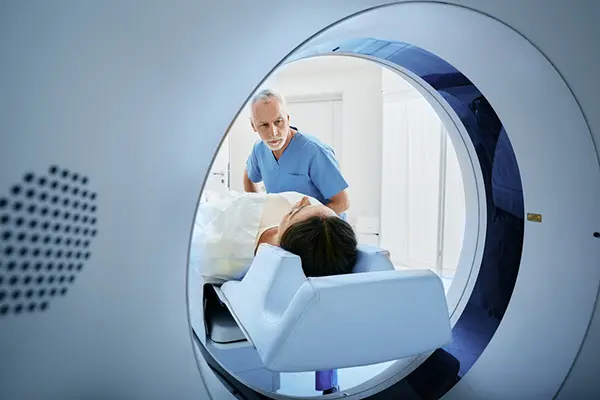The All-Party Parliamentary Group (APPG) for Diagnostics has today, Tuesday 23 January 2024, published a review of the challenges and triumphs of community diagnostic centres (CDC) following its inquiry into their progress, including a series of roundtables in 2023.
Feedback Medical CEO, Dr Tom Oakley, gave evidence on our CDC programme work on symptom-based pathways with the Queen Victoria Hospital as part of the inquiry.
The APPG’s report underscores that problems persist with the programme. Despite anticipation that CDCs would significantly improve early patient access and streamline diagnostic testing in one-stop community hubs, the pace of activity is slow, as only 6.5% of the total diagnostic activity reported on by NHS England (NHSE) occurred in CDCs in September 2023. This statistic highlights that CDCs are yet to fully realise their anticipated role of helping to tackle the diagnostic backlog.
The report looked at five key areas and recommendations for each:
- Progress against targets
- The location of CDCs
- The right test, checks and scans
- Physical and digital infrastructure
- Workforce
Four recommendations for the physical and digital infrastructure for CDCs included:
- National strategy – NHSE should provide more centralised digital leadership by developing a national strategy for the integration of patient data and digital tools within CDCs, outlining a roadmap for the adoption of digital solutions to streamline the diagnostic process.
- Primary care outreach – After CDC approval, system leads should conduct outreach with primary care providers within the ICB to increase awareness of the new site.
- Patient data sharing – NHSE should prioritise bolstering digital infrastructure and patient data sharing in CDCs. Periodic assessments should be conducted to address integration challenges.
- Interoperability standards – NHSE should develop and enforce interoperability standards for digital tools used within CDCs to ensure seamless data exchange and collaboration between primary and secondary care settings.
The report gave an overview of our pilot with the Queen Victoria Hospital achieving an impressive 69% reduction in patient waiting times for the breathlessness pathway. Leveraging digital infrastructure through Bleepa and CareLocker, this initiative achieved remarkable efficiency gains, releasing £1.7 million for every 10,000 patients without requiring extra staff or CDC expansion.
Dr Oakley highlighted during the inquiry that some of the barriers to scaling up our pilot with the Queen Victoria Hospital included the historical lack of digital leadership in the NHS and the need for more funding to help drive the digital infrastructure to support the CDC programme.
“Following significant investment in bricks and mortar and staffing the CDC programme is beginning to bring additional diagnostic capacity online for the NHS. Whilst this is a promising start, investment is now required for the digital infrastructure needed to connect the CDCs into the wider healthcare ecosystem. Digital is the third pillar of the build, alongside bricks and mortar and staffing: without it CDCs operate in a silo that limits their ability to impact waitlists. Results alone do not move care forwards.
“Results need to be presented to clinicians and rapidly turned into care decisions and this requires a digital connection that does not exist today outside of the Queen Victoria Hospital pilot. By digitally embedding CDCs into care pathways it has been shown to be possible to reduce waitlists by as much as 69% and reduce the requirement for outpatient appointments by 89%, simply by turning results into decisions. We now need to see investment in digital to supercharge the CDC programme and maximise its impact on reducing patient waitlists.”
Dr Tom Oakley, CEO, Feedback Medical Limited
